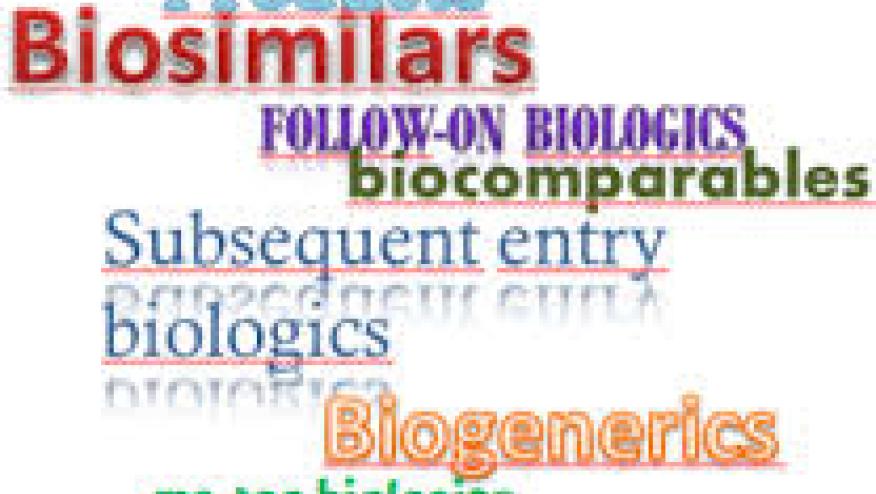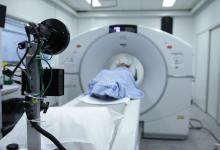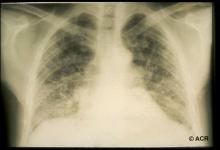Cautious Optimism for Biosimilars in Rheumatology Save

In April 2016, the FDA approved Inflectra, a biosimilar to infliximab (Remicade), which was the first monoclonal antibody biosimilar, and MedPage Today reported on the clinical and legal issues being faced. Here we review subsequent developments regarding biosimilars for rheumatic diseases.
Since April, two other biosimilars have received approval: Erelzi, a biosimilar to etanercept (Enbrel), and Amjevita, a biosimilar to adalimumab (Humira).
The American College of Rheumatology (ACR) has stated, "The FDA considers a product to be 'biosimilar' to a reference product if it is shown to have no clinically meaningful differences with respect to safety, potency, and purity."
At the time of Inflectra's approval, Douglas White, MD, PhD, of the ACR's Committee on Rheumatologic Care told MedPage Today, "The ACR is hopeful that biosimilars will help reduce the cost of biologics and thus improve patient access to these complex and lifesaving drugs."
Eight months later, he said, "We remain cautiously optimistic about biosimilars including Inflectra. The most important development since April, in my opinion, is the release of the results of NOR-SWITCH. This trial provided real-world data on maintenance of efficacy as well as adverse events after nonmedical (that is, no medical indication to change drugs) switching from reference to biosimilar infliximab in 481 patients with a diagnosis of rheumatoid arthritis, psoriatic arthritis, spondyloarthritis, Crohn's disease, ulcerative colitis, or psoriasis."
The study, presented in a late-breaker session at the ACR meeting, followed patients for 52 weeks after either being switched from reference infliximab to the biosimilar CT-P13 or continuing on infliximab, and found disease worsening in 26.2% and 29.6%, which was within the non-inferiority margin.
"Unfortunately, I've not seen any reason to believe that the availability of biosimilars in the U.S. will reduce the out-of-pocket expenses to patients who rely on biologic therapies," White said. "Nor have I seen any evidence that the availability of biosimilars will reduce costs to these patients by reducing their insurance premiums. Indeed, early pricing information that I've seen indicates that discounts will be modest at best. Hopefully that will change as more biosimilars enter the market and competition increases."
"In addition to ongoing court battles between manufacturers, unresolved issues surrounding biosimilars include the FDA's final decisions regarding interchangeability and the state laws and regulations that will govern switching and notification. We continue to keep a close eye on those developments," White concluded.
A recent statement from the ACR noted, "Across the country, legislation governing the use and especially substitution of biosimilars has been moving through state legislatures. These bills and laws vary to some extent but are fairly uniform in that they will allow for the substitution by a pharmacist with a lower cost biosimilar that the FDA has designated as interchangeable. Without interchangeable status, a new prescription must be obtained in order to switch."
The three rheumatology biosimilars presently approved do not have interchangeable status.
In an update on the legal issues, Andrew Williams, PhD, of McDonnell Boehnen Hulbert & Berghoff, told MedPage Today that Pfizer announced on October 17 that it would begin shipping the Inflectra biosimilar in late November. "This press release indicated that it would be introduced at a 15% discount to the current wholesaler acquisition cost of Remicade," said Williams, who specializes in patent litigation in pharmaceuticals and biotechnology.
At the time of approval, Janssen, the owner of Remicade, had asserted that Inflectra infringes on a patent that doesn't expire until September 2018 and vowed to defend their intellectual property rights. However, in September 2016, the District Court found that U.S. patent no. 6,284,471 ("Anti-TNF Antibodies and Assays Employing Anti-TNFa Antibodies") was invalid, based on "obviousness-type double patenting," Williams explained. Janssen had also held patent 6,790,444, ("Anti-TNF Antibodies and Peptides of Human Necrosis Factor"), which expired in July 2011.
"In briefing for extending a deadline in the Federal Circuit, Janssen stated that U.S. sales began on November 28, 2016. Celltrion, et al. also indicated on December 6, 2016 in a different brief that they had recently launched," Williams said.







If you are a health practitioner, you may Login/Register to comment.
Due to the nature of these comment forums, only health practitioners are allowed to comment at this time.